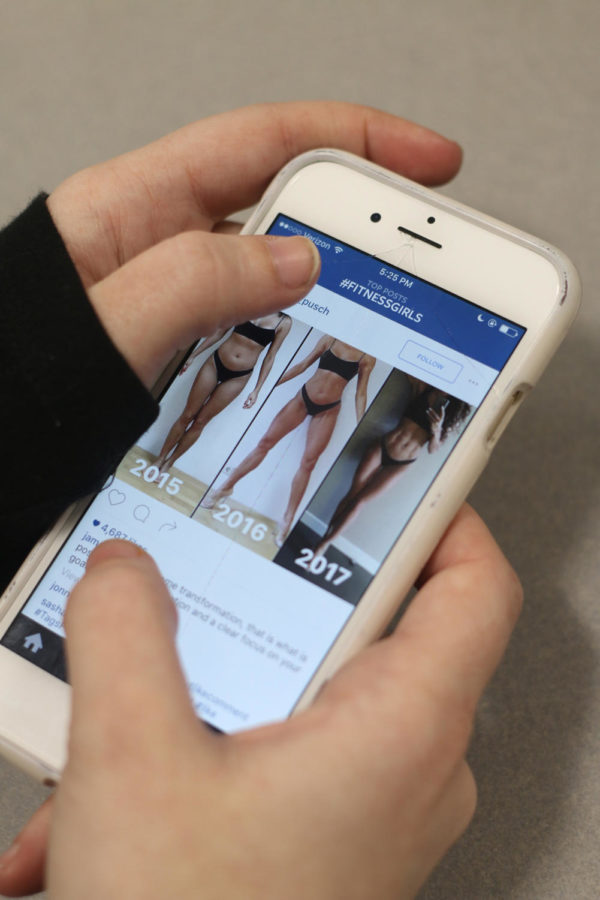Tyrrell: Curate your social media feed to cut through the lies
January 27, 2021
Since the moment we each exited the womb, Gen Z has been putting up with a lot of complicated crap.
See: pending world wars, the looming specter of climate change, national debt handed to us by our parents, the ramifications of late-stage capitalism…. Cheery, isn’t it? Of the conundrums facing my generation, though, the duplicitous nature of social media particularly stands out for its ability to create a pain that is at once shared and intensely personal.
Our experiences on social media take shape and grow roots in our minds before we even realize they’re there, and then BAM — we’re saddled with body dysmorphia and depression. (I’m speaking here mainly of Instagram and other visual-heavy platforms, because no one likes seeing a person who has their life together on Twitter. Twitter is exclusively for gathering a live audience for the worst moments of your life.)
Like many other college-aged women, my relationship with social media is a mixed bag. I’m obsessed with it… and I also hate the way it makes me feel. One of the only decisions I have made within the last couple of years that actually makes me feel better about the time I spend on social media is to carefully curate who I am following, and therefore, what content I see. The second someone that I’m following posts something that makes me feel like garbage about my own body or life, they get cut. I don’t just eliminate the negative accounts, though; I seek out content that actively BOOSTS my mental health. And by FAR the account that has been most successful at that is an anonymous Instagram user with 86,700 followers and the username “@problematicfame.”
What @problematicfame does is simple and powerful: She concisely, and respectfully, points out the ways in which celebrities have altered their appearance, whether via cosmetic surgery or photo editing. And, critically, she does so exclusively for celebrities that claim to have never altered their appearances in any way.
A recent example I found particularly compelling was a “then and now” post on Bella Hadid. (For those who don’t know, Bella Hadid is one of the most famous supermodels of our day. Her face makes millions of dollars for the most prestigious fashion houses in the world.) Hadid has always insisted that she has never had any work done on her face, but in @problematicfame’s side-by-side comparison of Hadid’s face now and from years ago, it is just so visually obvious that she has had work done that it becomes a little mind-boggling to think Hadid actually wants us to attribute those changes to makeup or puberty. Instead of ogling at how impossible and beautiful Bella Hadid’s face is, now I can look at it and see exactly how it was changed. @problematicfame cut through the lie in one graceful post.
I want to make it clear that I don’t think there is anything inherently wrong with cosmetic surgery; everyone has a right to do what makes them feel most beautiful. But getting work done and lying about it, or using Photoshop to make yourself look slimmer and then posting that photo to thousands of impressionable followers, is different. Scientific evidence showing a correlation between media use and rates of eating disorders, depression and body dysmorphia is mounting, and considering the serious damage these diseases can have on young people, being able to cut through the lies is crucial.
Most of the women on @problematicfame are stunningly beautiful both before and after their alterations. Somehow, though, seeing those dissatisfactions even in the most objectively attractive people on the internet puts my own body image into perspective.
When I can look at a photo of a beautiful woman on Instagram and see the ways in which she has digitally edited or altered her appearance, it doesn’t take away from her beauty; it just dramatically reduces how much I compare myself to her. I realize that she isn’t flawless, after all; she isn’t even fully satisfied with her appearance, just like me. She is simply a human being.







